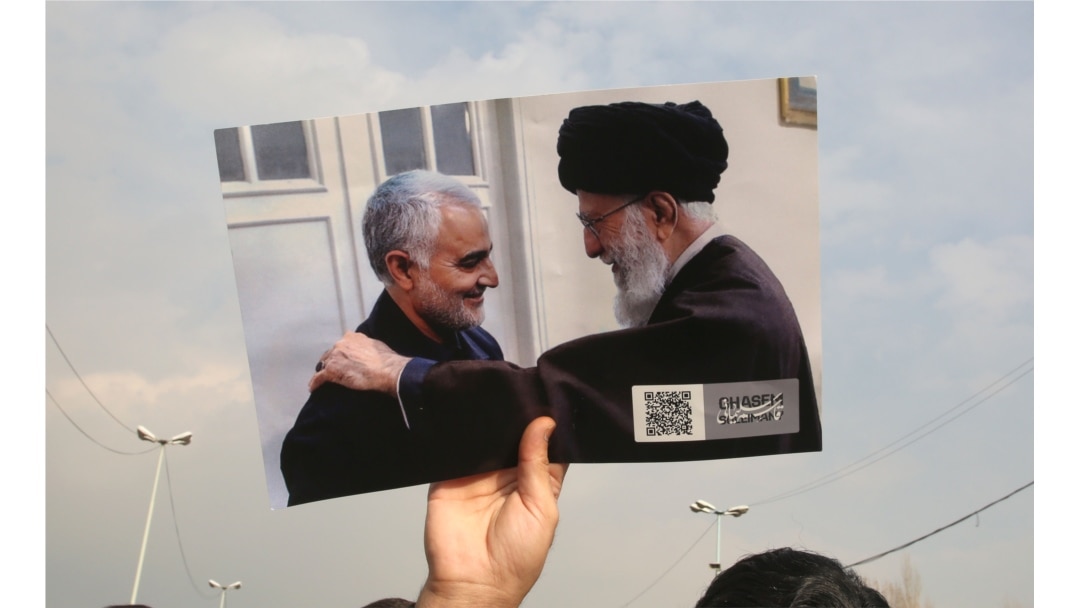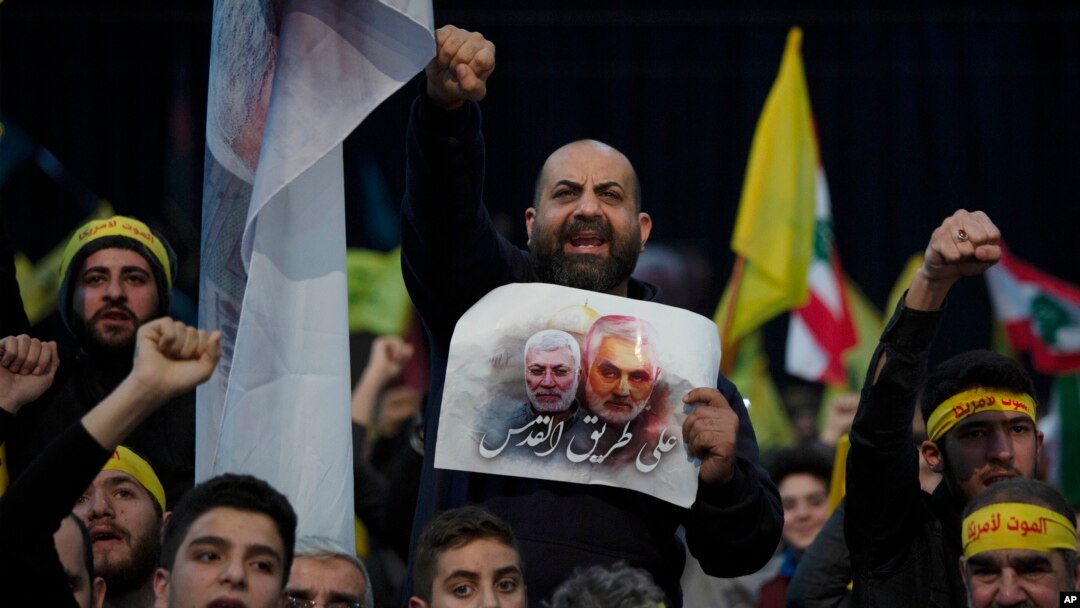The leader of the Lebanese militant group Hezbollah said the U.S. military in the Middle East "will pay the price" in response to the death of a powerful Iranian commander in a U.S. strike.
During a televised speech on Sunday marking the death of Gen. Qassem Soleimani and several Iranian-backed Iraqi militia leaders on Friday in a U.S. drone-launched missile that targeted his convoy in the Iraqi capital, Baghdad, Hassan Nasrallah said responding to the killing of Soleimani was also the responsibility of Iran’s allies in the region.
"When the coffins of American soldiers and officers begin to be transported... to the United States, [U.S. President Donald] Trump and his administration will realize that they have really lost the region and will lose the [2020 U.S. presidential] elections" Nasrallah added.
The militant leader noted that U.S. civilians in the region "should not be touched."
The Shi'ite Lebanese group is a close ally of Iran, receiving financial and military support from Tehran.

A man holds a picture of Iran's supreme leader Ali Khamenei with Iranian Revolutionary Guards top commander Qasem Soleimani (L) during a demonstration in Tehran, Jan. 3, 2020 against the killing of the top commander in a US strike in Baghdad.
Iranian leaders, including Supreme leader Ali Khamenei, have vowed a "crushing response" to the killing of Soleimani who led Iran’s elite Quds Force.
Other Iranian-backed militia leaders in Iraq and Yemen have also pledged to retaliate against Soleimani’s death.
Potential attacks on Israel?
Considering Nasrallah’s speech on Sunday, experts said Hezbollah has a wide set of options that it could use for vengeance against the U.S. and its interests in Lebanon, Israel and the broader region.
Hezbollah "has a rocket arsenal of over a hundred and thirty rockets and mortars and a history of conducting attacks both against the U.S. and other targets within Lebanon and elsewhere," said Thomas Abi-Hanna, a global security analyst at Stratfor, an intelligence firm based in Austin, Texas.
"Potential attacks against U.S. interests, diplomatic personnel and others in Lebanon are one potential threat they could pose," Abi-Hanna told VOA, adding that Hezbollah could also choose to launch attacks against neighboring Israel.
"Given the group’s animosity towards Israel and Israel’s close alliance with the U.S., they could attempt to strike either American or Israeli targets within Israel using that same set of rockets," he said.
Since the 2006 war between Israel and Hezbollah, the two sides occasionally have exchanged attacks. In the wake of Syria’s civil war, Israel has also hit Hezbollah targets inside Syria, where the Lebanese group has been fighting on the side of Syrian President Bashar al-Assad’s regime.
On Saturday, Gholamali Abuhamzeh, a senior commander of the Iranian Revolutionary Guard Corps (IRGC), said Iran has identified 35 U.S. targets across the Middle East, including in Israel, which could potentially be attacked by Tehran and its proxy forces.
But Israeli security analyst Eli Nisan told the U.S.-funded Alhurra TV Sunday that Israel has taken all precautionary measures in this regard.
"Israeli intelligence and air force are ready to defend the country and will respond to any assault from Iran, Hezbollah or [the Palestinian] Islamic Jihad," he said.
FILE - Hezbollah security forces stand guard as their leader Sheik Hassan Nasrallah speaks via a video link on a screen in the southern suburb of Beirut, Lebanon, Sept. 10, 2019.
Lebanon at risk
Other experts said that Nasrallah’s threats could be seen as a "declaration of war" against the United States and its allies.
"Using such a language by the head of the Hezbollah militia puts Lebanon at stake," Lebanese affairs analyst Luqman Selim told Alhurra Sunday.
"What Nasrallah is doing is basically throwing Lebanon’s people and its institutions into an unpredictable labyrinth," Selim said, noting that "Hezbollah is a non-state actor and its actions are not sanctioned by the will of the Lebanese people."
Hezbollah was designated by the U.S. State Department as a Foreign Terrorist Organization in 1997.
Ezel Sahinkaya contributed to this story from Washington.


